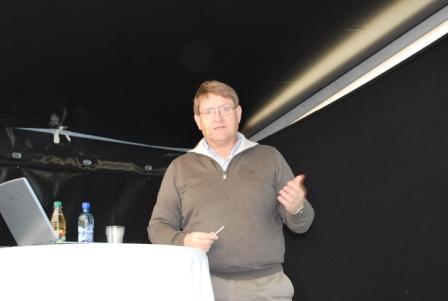Hawassa- UiB Joint PhD program thriving
On the third year of its launching, the Joint PhD program between the University of Bergen-Norway and Hawassa University-Ethiopia is showing remarkable success. It has so far enrolled 18 PhD candidates conducting their studies at both universities.
Main content
While presenting the progress of the Joint PhD program to the staff of Centre for International Health (CIH), IGS at the University of Bergen, coordinator of the joint program Bernt Lindtjørn said the program is being funded by the South Ethiopia Network of Universities in Public Health (SENUPH) with the financial support secured from the Norwegian Program for Capacity and Development in Higher Education and Research for Development (NORHED)
Assigning the Hawassa University as the home institution, the agreement provides for full participation of both universities at all levels. Accordingly, there are joint supervisions, mid-way evaluations and PhD defence sessions. On top of these, ethical reviews are conducted in Norway as well as in Ethiopia on separate basis.
Sustainability as a target
Drawing lessons from a preceding joint PhD program between UiB and Makerere universities, this program has the objective of promoting sustainability in the home university. According to Bernt Lindtjørn, the goal is to gradually empower Hawassa University to start its own PhD program. In his view, most of the courses will be thought in Hawassa University in the near future.
He added he has observed a growing sense of ownership on the part of the home university whereby it has decided to invest its own resources for the program. As a token of this commitment, the university has decided to fund two PhD candidates.
So far, the program has received positive feedback from NORHED as well as partners in Ethiopia. He noted that there are signs that other academic institutions in Ethiopia are looking forward to emulating the program. Some of the research topics under study in the program include nutrition, child and maternal health, population studies, HIV and environmental health.
Established in April 2000, Hawassa University has close to 26,000 students. It runs 75 undergraduate, 80 masters and 7 PhD programs.


